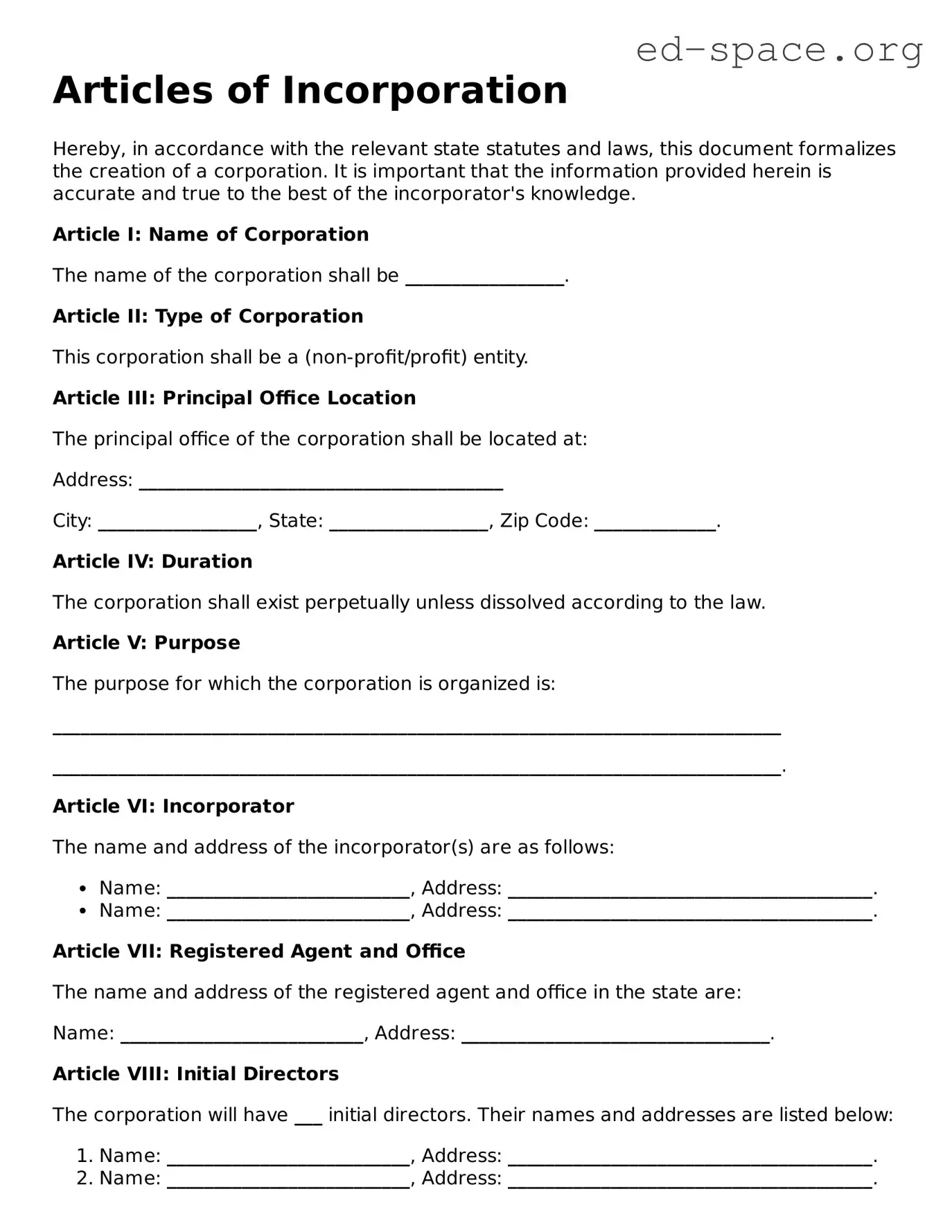Articles of Incorporation
Hereby, in accordance with the relevant state statutes and laws, this document formalizes the creation of a corporation. It is important that the information provided herein is accurate and true to the best of the incorporator's knowledge.
Article I: Name of Corporation
The name of the corporation shall be _________________.
Article II: Type of Corporation
This corporation shall be a (non-profit/profit) entity.
Article III: Principal Office Location
The principal office of the corporation shall be located at:
Address: _______________________________________
City: _________________, State: _________________, Zip Code: _____________.
Article IV: Duration
The corporation shall exist perpetually unless dissolved according to the law.
Article V: Purpose
The purpose for which the corporation is organized is:
______________________________________________________________________________
______________________________________________________________________________.
Article VI: Incorporator
The name and address of the incorporator(s) are as follows:
- Name: __________________________, Address: _______________________________________.
- Name: __________________________, Address: _______________________________________.
Article VII: Registered Agent and Office
The name and address of the registered agent and office in the state are:
Name: __________________________, Address: _________________________________.
Article VIII: Initial Directors
The corporation will have ___ initial directors. Their names and addresses are listed below:
- Name: __________________________, Address: _______________________________________.
- Name: __________________________, Address: _______________________________________.
- Name: __________________________, Address: _______________________________________.
Article IX: Stock
If the corporation is authorized to issue stock, the total number of shares the corporation is authorized to issue is _________________.
Article X: Indemnification
The corporation shall indemnify any director, officer, employee, or agent who was, is, or may be involved in legal proceedings by virtue of his or her good faith actions on behalf of the corporation.
Article XI: Amendments
These Articles of Incorporation may be amended as per the laws governing the state in which the corporation is registered.
Article XII: Adoption
The undersigned incorporator(s) hereby declare(s) under penalty of perjury that the statements made in this document are true and correct, to the best of their knowledge, dated this __________ day of _________________, _____.
Signature: __________________________
Name Printed: __________________________
Date: __________________________
